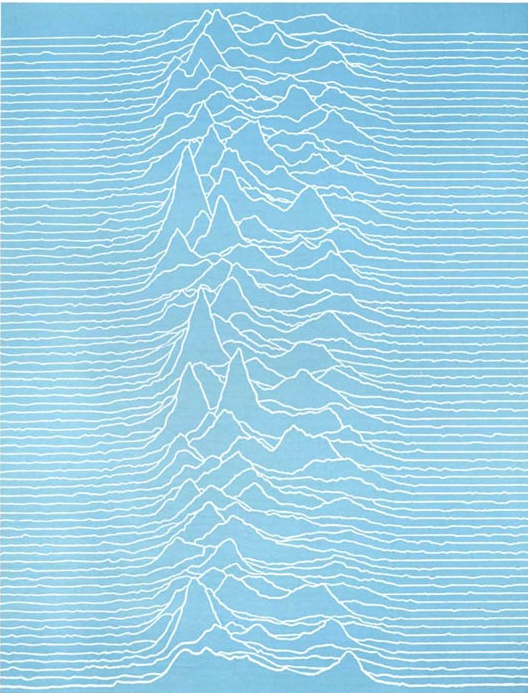I have a couple of old laptops lying around and want to throw them away, but have been cautious to do so because of privacy concerns of data still on the hard drives. What is the best way to wipe them? Or should I take them out and physically destroy them?
They are running windows vista and 10 I think.
The only way to completely erase all data beyond recovery is to destroy the disk e.g. snap in half and move a powerful magnet above it.
If they are Windows and have Bitlocker encrypt the whole drive and throw away the key. If not get Veracrypt for free and encrypt the entire drive. Once the drive is fully encrypted and has no backup key you can just trash it. If this was commercial use I would then send it to a third party to be certified destroyed.
Thanks!!
I like to take the hard drive(s) out and either drill holes in them or beat them to pieces with a big hammer.
Dear old Dad worked in IT, and he had a clearly marked “hard drive eraser”. It was a 20 pound sledgehammer.
Doesn’t that still leave most of the data on it? You don’t even bother erasing the drive first?
It takes far more work to recover data off of smashed platters than Joe the average users data is worth. There’s very few ways to make that data completely nonrecoverable. Even zeroing the drive isn’t 100% safe from someone with the right resources and knowhow. Just smashing the platters makes data recovery enough of a pain that it’s almost never worth it.
Data on a HDD that’s been overwritten with zeros or random data is unrecoverable with all known current technology.
In theory it might be possible to recover something with some future tech that hasn’t been invented yet, which is why the DOD standard requires erasing with multiple passes, but there isn’t currently a (publicly known) way of doing it.
SSDs are a bit tricky because of wear levelling, but usually two full overwrites of a SSD makes it just as unrecoverable.
I don’t see how much data can be recovered from broken, bent pieces. If you’re really concerned, you can use a torch to raise a magnetic platter until it glows, this raises it above it’s curie temperature so all the magnetic particles stop being magnetic.
Hammer, then marinate for atleast 30 mins in soya sauce, onion, garlic, herbs, then bbq, eat and poop in 3 different bathrooms across the city. Pro tip, sprinkle with olive oil each side while on the grill.
Gordon RAMsay
Smuggle the laptops into the cargo bay of Elon’s next Starship launch.
You’ve said you’re intending to throw these laptops away, so physical destruction is quickest and simplest.
But, if you’re intending to sell or give these away for someone else to use, zeroing each sector is probably ‘good enough’ for your purpose (as someone else has always said).
If you really want to make it harder, you can use something like the Boot and Nuke bootable Linux disk for the job, as it also has the option of multiple passes, using zeroing and/or binary random shit for each sector. Just grab the free for personal use version.
Since no one mentioned it: VCR tape eraser.
Basically just an electromagnet that oscillates because it’s running directly from AC current.
With an extension cord you could erase all the hard drives in a computer lab just waving the eraser vaguely where the drives are.
Physical destruction is better though.
That doesn’t work for SSDs though.
-
There are companies you can pay to physically shred your disk drives. You have to be able to trust them of course for this to work.
-
Or if you want to DIY, you can drill or smash your drives. Just wear eye protection, etc. Making the drives inoperative like this is the only thing I’d trust, but you can also software-wipe them first.
Yeah, we have a company that does e-cycling events every month. I usually go there once every 3-4 months with my various electronic goods,
It costs (currently) $5 a drive, but they shred the drives on site, AND bring you to where they shred them to watch to ensure they get shredded.
I personally remove the hard drives from any enclosure/laptop/desktop after wiping as a force of habit, as they charge an additional fee to pull the drives out for you.
If you’re in the states, you can usually look on your county government’s website for when e-cycling events occur. The ones where they’re quarterly at a centralized location such as a mall parking lot, or a park parking lot, you’re likely going to have to rely on them shredding elsewhere and you cannot be certain they’re destroyed. However, the places that do the e-cycling at their own center, you’ll likely be able to do the above and watch the drives be shredded.
As others have said, destroying with a drill or the like is more than adequate, however the MOOP from it isn’t great for the environment, animals, or your feet if you happen to do the destruction inside / outside your home.
Great tip on the eye protection! Metal splinters are a nightmare for any future MRI’s one might need.
-
Just turn on disk encryption.
Cracking encryption gets easier over time. This is a timebomb.
True, but if all the data was encrypted, then the drive formatted it would require physically dismantling an HDD in a clean room to recover data, for SSDs the wear leveling makes it hard to fully erase anything, but again, after encrypting and formatting the cost of the tools needed to get the data back are well above the potential benefit (i.e. there are easier ways to get people’s personal info)
I don’t understand why filling the drive isn’t enough to overcome wear leveling.
It absolutely is. The thing that isn’t enough is doing a full disk TRIM, but I haven’t seen that recommended. A single pass of
dd if=/dev/zerois plenty adequate.
If you just do the simple one-pass zero-ing out, suggested a few times here, the data is only recoverable in theory. There are labs that do it, but they charge thousands of USD for a drive and giving limited results.
Unless you are being actively targeted by deep pockets, that’s plenty good enough.
And if you do a couple passes (might take a bit but who cares if youre throwing the whole thing out) then in theory even the nsa can’t get in it
It depends how badly you need that data to never see the light of day again. Most likely, you’ll be fine to erase the drives with secure erase options (where it writes 0 and then 1 to the whole drive, and back and forth a few times depending on settings), but if you really really need to 100% guarantee there’s absolutely no chance of recovery, then you’ll need to destroy the drives physically
There is nothing extremely sensitive on there, but the more time I spend on lemmy (as a bit of a tech noob) the more I care about privacy
In that case, secure wipe should be more than enough
also, if you’re getting rid of them, there might be a charity you can donate them to rather than just tossing them. Idk any off the top of my head, but it seems worth looking into
I work at an electronics recycling facility and all laptops that are recycled are completely sanitized and properly disposed of as e-waste. Look around for a local recycling center and check for an R-2 certification, if they have one they will take out any identifiers and do passes on drives via a sanitization device to ensure that the whole thing is completely devoid of all data.
This is the correct answer. Give it a format just to be sure then donate it to a recycling center.
Geez at the answers in the thread. Boot off a USB drive with Linux, right click the HD, and simply format the drive. Not a quick format, you may have to unselect that. You’ll know because a quick format will take seconds, a full format will take an hour (depending on the size of course).
Then donate the laptops. Donation place should be able to install Linux. Most people don’t need much laptop.
Hmm, what does that full format do? Write zeros over everything?
Personally, I would run
shredon the root filesystem. It’s a tool specifically intended for properly deleting data (overwrites it with random data multiple times).Even writing 0’s takes hours per TB sometimes. Guess it depends on how much time you have
It took maybe 10 minutes or so for a 256 GB hard drive for me, if I remember correctly.
That was an SSD, though, so yeah, mileage would definitely vary on an HDD.
Yes.
Here’s a good article from Tom’s: https://www.tomshardware.com/how-to/secure-erase-ssd-or-hard-drive
Laughing at all the Hollywood shit in this thread. A single pass erase (or ATA Secure Erase, if they are SSDs that support the command) is more than enough. Nobody is going to waste time and money recovering data of unknown provenance from a landfill.
HDDs also support ATA Secure Erase, although it will take a few hours rather than the few minutes it would wirh an SSD.
Yes, unless they are OPAL, in which case it’s done the same way as SSDs: throw away the key.












